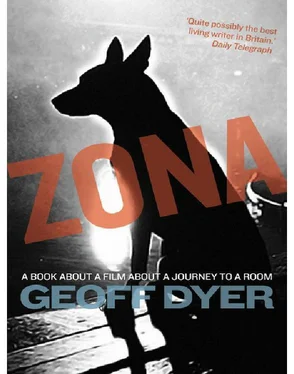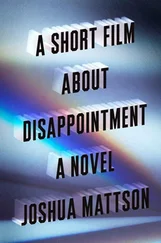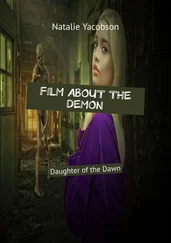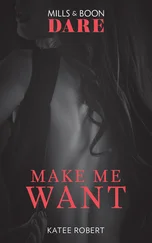13On the subject of quotation within film: an interesting study could be made — in a sense this book is a catalogue or compendium of proposals for potentially interesting studies — of scenes in films where bits of other films are seen, glimpsed or watched, either at a drive-in, on TV or in the cinema ( Frankenstein in Spirit of the Beehive; Red River in The Last Picture Show; The Passion of Joan of Arc in Vivre Sa Vie). Actually, maybe it wouldn’t be that interesting after all; one wouldn’t get far without the word meta cropping up and turning everything to dust. But, as it happens, this sequence in Stalker is used to brilliant effect in Uzak ( Distant, 2002) by Turkish director Nuri Bilge Ceylan. Mahmut, a middle-aged photographer, is living in Istanbul. When his clodhopping cousin, Yusuf, comes to the city looking for work Mahmut is obliged to put him up in his apartment. They may be from the same village but they’re worlds apart and Mahmut is not about to compromise his high aesthetic standards just because a dull-witted cousin has come to stay. So when we see them at home, feet up, watching TV, it’s not Top Gear or Turkey’s Got Talent they’re watching; it’s Stalker, the trolley sequence. The two of them are slumped and stretched out in their chairs, in a torpor of concentration and boredom. Mahmut is eating nuts, pistachios presumably. Cousin Yusuf has nodded off. One can hardly blame him; even the most boring night in the village cannot compare with the depths of tedium being plumbed here. Professor, Stalker and Writer are on-screen, on the trolley, heading towards the Zone, faces in tight close-up, while, in the unfocused background, some kind of landscape blurs past. The electronic score echoes and clangs through the apartment. Yusuf wakes up, amazed to discover that he’d been asleep for only a few seconds or, even more amazingly, that after a long nap the TV is still showing these three old blokes drifting along the railroad to nowhere. Peasant he might be, but at some level he has intuited Jean Baudrillard’s insight that television is actually a broadcast from another planet. The evening, evidently, is not going to improve. He decides to go to bed. They say good night. After a decent interval Mahmut gets up, fetches a video, puts it in the VCR and points the remote. Stalker is replaced by girl-on-girl porno. Everything else remains pretty much unchanged. Before, he had one foot on the pouffe, and one hitched up over the arm of the chair. Now he has both feet on the pouffe, otherwise he’s stretched out the same way as when he was watching Stalker. The only difference is that now, instead of this long magical sequence of three men clanging toward the Zone, we’ve got a silicone-breasted woman sucking the enormous tits of a Page Three model. Upstairs, Yusuf telephones home. After a while he comes down again and Mahmut, who has not budged, who is not jerking off, whose fly is not even open, just about has time to flip to a broadcast channel. The fact that the indescribably boring film they were watching earlier has morphed into comedy is not lost on Yusuf — this is much more his cup of tea — and he stands there snickering a bit so Mahmut flips channels again and comes to a kung fu movie — which is exactly Yusuf’s cup of tea. His evening has improved after all but Mahmut’s has taken a decided turn for the worse: no Tarkovsky and no g.o.g action, just him and his moronic cousin watching a kung fu film. It’s late, he says. Let’s turn that off.
If you wanted a definition of deadpan you could do a lot worse than choose this sequence to illustrate your point. In fact, thinking about it, this sequence is probably the most deadpan I have ever seen in a film. It’s so deadpan that you have to be a real cinephile to find it funny and even then you don’t actually laugh out loud. You just sit there on the sofa with your feet up, munching pistachios, watching, snickering. If you laugh out loud it’s partly to show you get the joke in all its precise levels of denotation but there’s an element of affectation about that laughter; it’s one of those laughs that contains the desire to explain why you’re laughing, why you’re so clever. If I were to make a film I would definitely contrive a scene in which a couple of people were watching a bit of Uzak, though probably not this bit. That way I’d really show how clever I was and it would give people in the audience a chance to have a good, third-degree, cinephilic meta-chuckle.
Uzak shows and quotes from Stalker. But what about the final shot in Michael Haneke’s Time of the Wolf (2003)? The refugees from an unexplained, all-engulfing catastrophe — at least it appeared all-engulfing at the time, before Cormac McCarthy’s The Road, after which most catastrophes seemed rather modest and local affairs; at least people aren’t eating each other in Time of the Wolf — are holed up at a railway station where they hope to be able to stop and board one of the trains rumoured to be heading south. (That earlier, facetious reference to asylum seekers is entirely and unfacetiously appropriate here.) The hope offered by these trains becomes increasingly forlorn as conditions and social relations deteriorate — though the hope of some kind of millenarian salvation grows correspondingly stronger. The film’s narrative comes to an end. Then there is a long sequence, shot from a train, of landscape rushing past, speed-blurred in the foreground, unspoiled and apparently unthreatened in the distance. Clouds piled up in a silver-grey sky: a sky with spring in its step. An expansive landscape. Trees, roads and clearings, then more trees and meadow. Deciduousness. A level crossing. The odd road sign and house, but no sign of people or cars. The landscape is pristine but not unusually or ominously so. There is no sign of devastation, though it is possible that it has recently been cleansed, not only ethnically but humanly. It has also been emptied of all clues as to what it might mean. There is no explanation of what this train is or where it is heading. The landscape rushing past refuses to sanction any symbolic reference to what has gone before. Trees and sky are absolutely unimbued. Then black. The end. In keeping with Haneke’s rinsed neutrality, one cannot say that he alludes to Stalker —that would be to freight the shot with exactly the kind of meaning he has rigorously avoided. But if it is impossible, as the poet Anthony Hecht pointed out, ‘to begin two consecutive pentameter lines with the words “After the” without an alert reader saying “Ha! Eliot! The Waste Land,” ’ then it is equally impossible to film anything like a horizontal view of a landscape from a train without a similarly alert viewer saying ‘Ha! Tarkovsky! Stalker.’ In both cases the reaction is — Hecht again—‘an index of the authority and duration and resonance’ of Eliot and Tarkovsky. Since Haneke is obviously a highly alert viewer, he can allude to Stalker without doing so — and, by the same token, can’t not do so.
14The similarities between Stalker and The Wizard of Oz have been widely remarked on: Dorothy longs to leave her small black-and-white town in Kansas; a tornado transports her to the magically coloured kingdom of Oz, where she and her companions — Tin Man, Cowardly Lion and Scarecrow — set off on a journey to find the wonderful wizard who will allegedly grant all their wishes, etc. Or so I’m told. I take other people’s word for it. I’ve never seen The Wizard of Oz, not even as a kid, and obviously have no intention of making good that lack now.
15Tarkovsky encountered a similar landscape again in 1983, just before the Telluride Film Festival, where he was to be honoured — alongside Richard Widmark — with a lifetime achievement award. Tom Luddy, codirector of the festival, served as a kind of Stalker, escorting Tarkovsky, Polish director Krzysztof Zanussi and others on a road trip through Utah and Arizona. The otherworldly scenery — especially the mythically cinematic Monument Valley — overwhelmed Tarkovsky, but Luddy’s attempted explanations of the geomorphological processes at work fell on deaf ears: such a place could only have been created by god. Anticipating the speech he would make at the festival itself (a diatribe against the idea of cinema as entertainment to which Widmark delivered a witheringly polite riposte the following day), Tarkovsky said that only Americans could be so vulgar and materialistic as to make Westerns in scenery like this; in such a place, he said, one should only make films about god. I wonder, was Luddy tempted to reply, ‘But John Wayne is a god’?
Читать дальше












